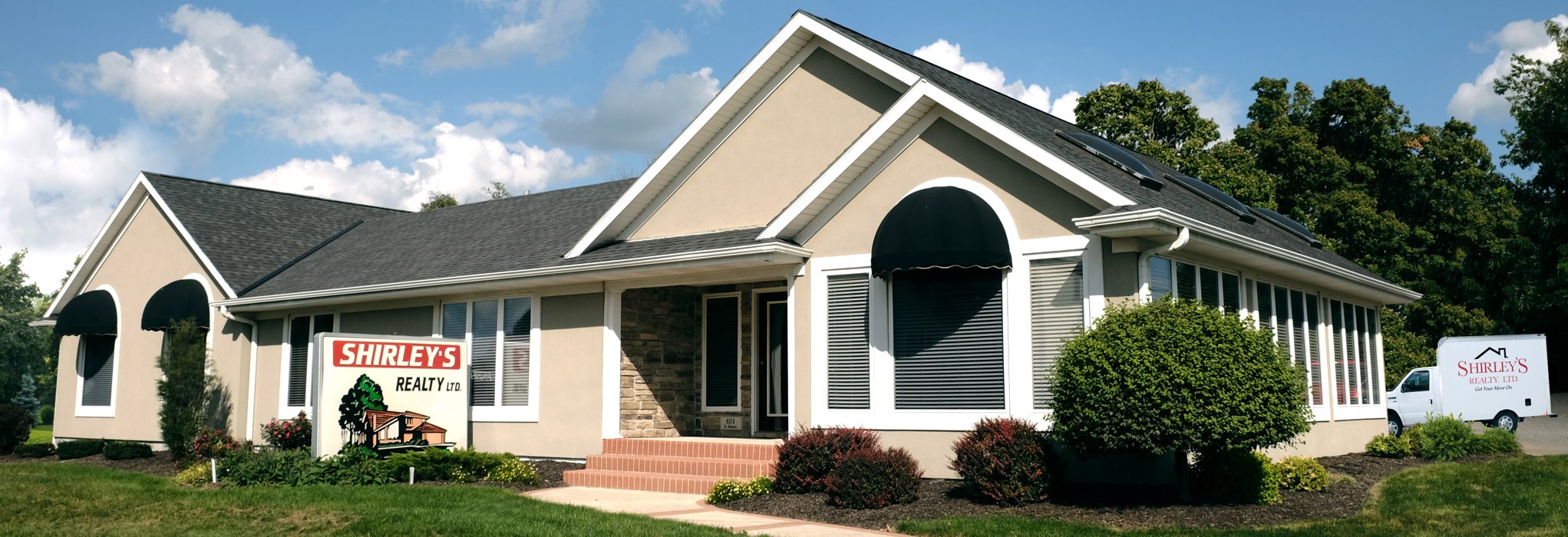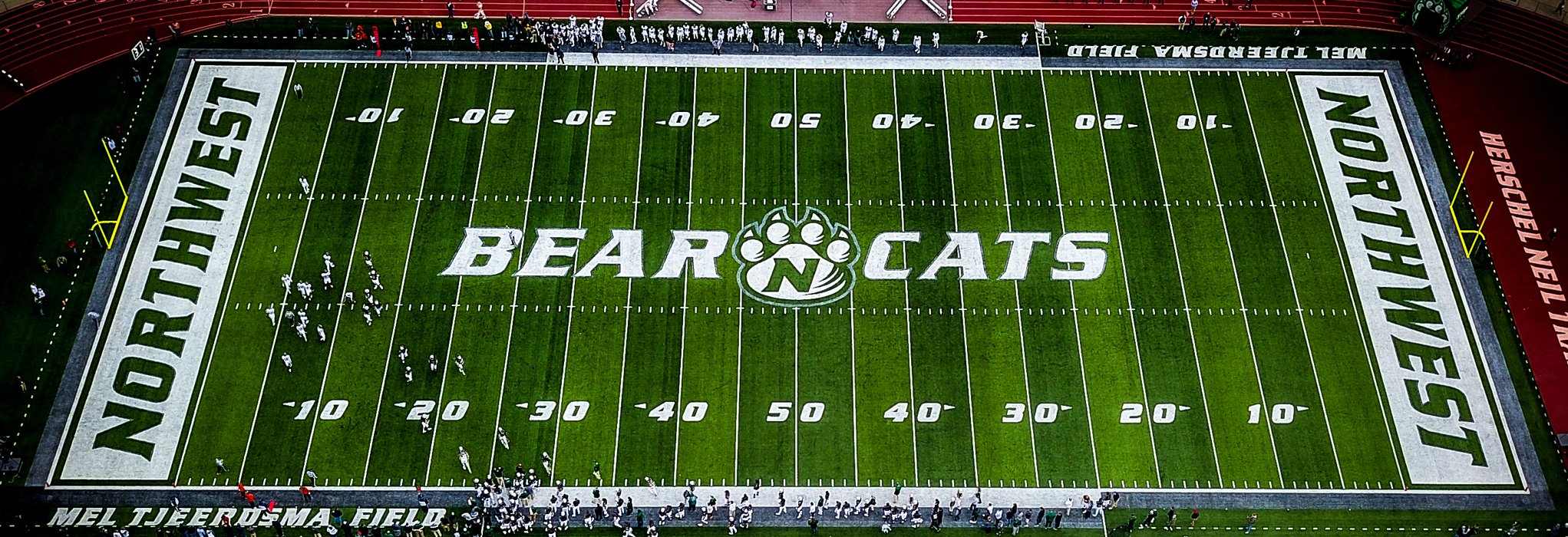Buyers
Finding and purchasing a home that will meet your needs now, and in the years to come, is a significant and often stressful time. Shirley's Realty goal is to make this transition as smooth as possible. Here are some tips that will help to make the search of finding your dream home easier than ever.
Pre-Approval
House Hunting begins with planning. Before you grab the road maps and hit the streets, you need to do a little homework called "pre-qualifying" or "pre-approval". Simply stated, pre-qualifying is determining how much house you can afford to buy. Knowing your affordable price range will bring your house-hunting into focus. Many lenders will be happy to work with you in determining your debt-to-income ratio, how much down payment you can afford, and obtaining all required verification to pre-approve you for a mortgage.
Here are some things to keep in mind:
- Qualifying- Determining how much house you can afford to buy depends on two things: how much you can invest in the down payment, and how much you can afford for the monthly loan payment. Your monthly payment will depend upon a variety of factors: credit history, size of down payment, length of employment, term (length) of the loan, interest rate, etc. Everyone's circumstances are different! Even though there are many ways to qualify to buy a home, be sure the monthly payment makes sense for your needs.
- What determines my Monthly Payments?- Typical mortgage payments include the following: the value going toward the principle amount of the loan, the monthly interest amount of the loan, property taxes and homeowner's insurance. These four costs are often abbreviated as "P.I.T.I." (Principle, Interest, Taxes, Insurance). For some buyers, monthly housing costs may also include homeowner's association dues, condominium fees, and private mortgage insurance.
- Private Mortgage Insurance {PMI} is typically utilized in the event that the buyer lacks a 20% down payment. The PMI is insuring the loan amount until the buyer has gained enough equity in the home to equal at least 20% of the loan amount. A down payment of 20% or more on a conventional loan will eliminate the need for mortgage insurance. Again, the need and terms of Mortgage Insurance varies widely from lender to lender- be sure to ask your lender about ALL of your monthly costs.
- The Down Payment- The source of down payment often comes from either the buyer's savings or the proceeds from the sale of a previous home. However, there are some other not so obvious monetary sources for you to consider.
- Home Equity Loan- In recent years, "Parent power" has taken come new twists for first-time buyers. Parents often have considerable equity built up in their own homes- and many are utilizing that asset through home equity loans to make a gift to their children. Ask your tax advisor for current information. Often lenders will require a "gift letter" to verify that parents don't expect repayment.
- Life Insurance Cash Value- If you have built up a cash value on your life insurance policy over the years, you may be able to borrow from your life insurance company in the amount of your accumulated cash value.
Financing
When it comes to paying for a home, buyers today have an almost unlimited number of financing options from which to choose. Be sure to "shop around" for the best rates- consider everything from interest rates, pre-payment penalties, administration fees, and other loan requirements that can cause your monthly payment or your closing costs to increase. Here is a quick break-down for some of the most common mortgage choices available to buyers today.
- Conventional Mortgage- A conventional mortgage is a loan made between a lending institution and a borrower without a third party participant, such as VA, USDA or FHA. Most types of conventional loans are paid off in equal monthly payments spread over 15, 25, or 30 years. The interest rate stays the same for the life of the loan. Therefore the monthly principal and interest payment also remains constant.
- Terms of a conventional loan vary among lenders, but basically a loan can be obtained with as little as 5% down payment. However, when the down payment is less than 20%, it can sometimes be necessary for the loan to have private mortgage insurance to protect the lender.
- Conventional loans typically require 30 days to prepare all of the documents required to close the sale. While some lenders may require 45, 60, or 90 days to close, the conventional loan process tends to be the "quickest" route to close. Be sure to talk to your lender about their closing timeline!
- VA Loan- A VA loan is a mortgage guaranteed by the U.S. Department of Veterans Affairs (VA). The VA does not lend money; it simply guarantees the loan amount against default. Thus, lenders feel more comfortable with the lending risk. The loan may be issue by any qualified lender. This type of guaranteed loan is only available to qualified veterans.
- Veterans can take out loans up to $240,000 with no down payment
- $0 down, 100% financing is available.
- The closing process on this loan may take a bit longer. These loans can require more paperwork and (sometimes) additional inspections, thereby increasing the number of days it takes to complete the required documentation. Rather than a 30-day closing period typically seen with a conventional loan, the closing period might increase to 45, 60 or even 90 days.
- USDA Loan- A USDA loan is a mortgage insured by the United States Department of Agriculture. The USDA does not lend money; it simply insures the loan against default. This makes lenders willing to finance home purchases on more favorable terms. The loan may be issued by any qualified lender. No longer considered "farmer's loans", many individuals looking to purchase a home outside a major metropolitan area can qualify for a USDA loan.
- Some restrictions to qualify for a USDA loan include: what county and zip code the home resides in, your current income and credit history, as well as the number of dependents you can claim. Because these guidelines are very specific, it is important to work with an experiences lender to determine your eligibility.
- $0 down, 100% financing is available; terms are up to 30 years allowing you to lower monthly payments; lower income families and those with blemished credit can qualify.
- As noted in the VA loan explanation, a USDA loan could also prolong the closing period- just ask your lender for a specific guideline.
- FHA Loan- An FHA loan is a mortgage insured by the Federal Housing Administration (which functions as part of the United States Housing and Urban Development or HUD program). The FHA does not lend money; it simply insures the loan against default. This makes lenders willing to finance home purchases on favorable terms. The loan may be issued by any qualified lender.
- Low down payments- 100% financing not available, but can be more reasonable than a conventional mortgage.
- As noted in the VA loan explanation, and FHA loan could also prolong the closing period - just ask your lender for a specific timeline.
The Contract
You've found it - your dream home! Now what? Choosing a place to live can be one of the most exhilarating experiences of a lifetime; but, choose wisely, because purchasing a home can be one of the largest investments you will ever make. It is often difficult to keep emotions in check when negotiating the purchase price of a home you love - so be certain that you are prepared and that you know the "top dollar" you are willing to spend.
Negotiations
- The Offer- When making an offer on a property, the Buyer's Agent will present a written, legal document signed by the buyer stating the terms of the offer. The offer will contain line items including, but not limited to, the following: the desired purchase price, any "additional" items that should accompany the sale of the property (such as appliances, window treatments, etc.), the terms of the buyer's financing, terms of the inspection phase, and an acceptance deadline.
- After the offer has been presented to the Listing Agent, the seller must then decide to either accept the contract as it is written, reject the offer completely, or present a counter-offer to the Buyer. However, this decision must be made before the specified acceptance deadline - otherwise, the offer expires.
- Typically, buyers and sellers will continue to "counter-offer" until they have reached a mutual agreement concerning the purchase price and closing date of the sale.
- Once the Buyer and Seller sign the offer in agreement, it then becomes a legally binding contract for the purchase of real estate.
- Earnest Money- When presenting the offer, the Buyer must also submit "consideration". Consideration is to show the sellers that you are earnest about your desire to purchase the property - appropriately called "earnest money". Typically, consideration is made in the form of a personal check to the listing office. The exact dollar amount offered can vary depending on the purchase price of the home, how serious the buyer is about the purchase, and the availability of buyer's funds.
- Once the Listing Agent obtains the Earnest Money, it will be deposited into an Escrow Account where it will stay until closing. At the time of closing, the earnest money will then be applied to the Buyer's closing costs.
- However, if the Buyer chooses to terminate the contract for any reason other than the contingencies specified in the contract (i.e. financing, inspection, etc.), the Earnest Money would be forfeited.
Contingencies
- Home Inspection- Standard contracts of sale are often contingent upon a Home Inspection Report. Typically, a home inspection is ordered and paid by the Buyer; however, some lenders require a home inspection for loan approval - be sure to ask! Home inspections are strongly encouraged regardless of your lender's policy - the peace of mind that an inspection brings, or detection of a problem, is well worth the additional cost. Here are some things to keep in mind:
- Expect practical results. While you can see for yourself many flaws in a house, the practiced eye of a professional inspector can probably spot more - especially in areas not easily accessible to a home buyer. Specific information could even reduce the price of a house if the seller will agree the price has not already been discounted for defects.
- Possible repair categories include Serious Repairs (i.e furnace/ductwork, roofing, plumbing, wiring); Moderate Repairs (i.e. insulation, paint); and Minor Repairs (i.e. individual electrical outlets, leaky faucet, kitchen sink).
- If no serious problems are found, the inspection can pay off indirectly in assurance that you are making a sound investment.
- Seller's Disclosure- Remember, a disclosure is NOT the same thing as inspection report. The Seller's Disclosure ONLY reports problems of which the current homeowner is aware. There can sometimes be "hidden" repairs associated with owning/purchasing a home. A professional inspection is encouraged.
- Termites- Often, the lender may require a termite inspection on the property before closing the sale. Typically, the buyer is required to pay for the termite inspection; but, that can vary depending on the contract stipulations and lender requirements - be sure to ask your loan officer. The results of this inspection may further require payment for removal of the infestation and repair of any damages from the infestation. You should get a written report at settlement indicating that the property is free and clear of any active termite infestation. The cost of the Termite Inspection is typically included in the Buyer's Closing Costs.
- Appraisal and Financing- Standard contracts of sales are also contingent upon the Buyer's ability to obtain financing. Once the inspection is complete, the lender will then order an appraisal and begin the final preparations for closing the sale. Typically, the appraisal fee will be included in the lender's closing cost estimate - but be sure to check with your lender about your extra costs.
- A typical appraisal will utilize one of three approaches to determine the value of the property:
- Cost Approach - takes into account how much the property would cost to build in today's market, less depreciation. The cost approach is ideal for new homes and special purpose buildings )i.e. Church Building, Recreation Center, etc.)
- Comparison Approach - compares the subject property to other recent sales in the area based on square footage, lot size, age of property, etc. The comparison is ideal for typical residential properties and vacant land.
- Income Approach- utilized when purchasing an income-producing property.
- The Buyer will receive a written Appraisal Report detailing the property's appraised value. The appraisal is often the deciding factor in exactly how much money a lending institution is willing to loan. If the appraisal amount is LESS than the agreed-upon purchase price, the Buyer and Seller have two options:
- The Seller can agree to lower the purchase price, allowing the Buyer to purchase at the amount of the appraised value.
- The Buyer, with lender's approval, can acquire additional funding to pay more than the appraised value of the property. Funds would be applied at closing.
- Mutual Termination of the Contract. If the Seller is unwilling to move from the contract price, and the Buyer is unwilling to spend more than the appraised value of the property, both parties would mutually terminate the contract. Earnest Money is returned to the Buyer, since the reason for termination falls under the "Financing Umbrella".
- A typical appraisal will utilize one of three approaches to determine the value of the property:
- Personal Property- Standard contracts of sale include items such as: furnace unit, air conditioning unit, bathtubs/toilets/sinks - attached fixtures - in the property sale. However, the buyer MUST specify if there are additional items that are to accompany the sale. Misunderstandings based on verbal agreements can delay settlement - as well as cause friction.
- Be sure to include items such as: Appliances (Refrigerator, Range/Oven, Washer, Dryer), Window Treatments, Storm Windows/Doors, etc.
- Optional Additions could include: Swing Set, Firewood, Hot Tub Chemicals, etc.
Protection
At settlement, most lenders require a home buyer to provide at settlement a one-year paid receipt for a fire and hazard insurance policy, often called Homeowner's Insurance. Fire and hazard insurance provides protection for fire and other perils to your home and its contents. The cost of a Homeowners policy is typically figured in the Buyer's closing costs.
Homeowner's Insurance
- Flood Insurance- If the subject property is located in a Federal Flood plain, the Buyer might also be required to carry additional insurance coverage for the property in case of a flood. There are several stipulations regarding Flood Insurance - both through the lender and the insurance carrier. Be sure to ask your Loan Officer AND your insurance Agent the different requirements specific to your property.
Title Insurance
Title insurance provides protection in the event any of a number of past actions threaten the title to your property. Most lenders will require title insurance to protect their interests - called a "Lender's Policy. Lender's policies are usually purchased in the amount of the loan value.
Be sure to ask about a separate “Owner’s Policy" as well. to protect your title. Owner's Policies are usually issued in the amount of the real estate purchase. It is typically purchased for a one-time fee at closing and is valid for as long as the owner or his heirs have an interest in the property. Only an Owner's Policy fully protects the buyer should a covered title problem arise with the title that was not found during the title search. The cost of a Title Insurance policy is typically figured in the Buyer's closing costs.
- Title Search- At the time of purchase, the Seller is required to provide the Buyer evidence of a Marketable Title. If the Title Search comes back "clear", the Title Company will then issue a Title Insurance Policy in the new owner's name (at closing) insuring the deed against encroachments or encumbrances on the property (i.e. liens, easements and deed restrictions).
Final Walk-Through
It is recommended that on the day of the closing (or 1-2 days prior to closing) the Buyer conducts a "Final Walk-Through" of the property. The purpose of the walk-through inspection is to determine if all conditions in the contract are satisfied. This is the time for the buyer to inspect that all of the contract negotiations have been completed (i.e. any repairs that were stipulated during the inspection phase; that all included personal property has been left at the residence; etc.).
It is up to the buyer to perform the walk-through inspection, not the seller, who may or may not be present. The buyer should be accompanied by the selling agent. The home seller should be sure utilities are on so that equipment can be operated.
- Room By Room- The buyer is encourages to try all lights and switches; turn all faucets on and off, run shower, flush toilets; turn on the furnace and central air conditioning (in the off-season, buyer should hire a professional to certify proper functioning of both heating and air conditioning); test all stove burners, oven at bake and broil; run some ice cubes through disposal to test blades; run dishwasher, washer, dryer through complete cycles; open and close all windows and doors; open and close the fireplace flue. In short, try everything, even keys!
All deficiencies should be noted, and funds may be withheld from the home seller by the settlement attorney for repairs, if seller does not correct problems prior to settlement. The selling broker will coordinate with the listing broker and seller to make repairs before settlement, if possible.
Settlement Statement
The Real Estate Settlement Procedures Act (RESPA) requires that Lending Institutions provide all borrowers with an itemized form outlining the costs associated with the purchase of real estate - called a HUD-1 form. The HUD-1 is used as the standard real estate settlement form in all transactions in the U.S. involving federally related mortgage loans. RESPA states that borrowers should be given a copy of the HUD-1 at least one day prior to settlement. Borrowers are encourages to review the form and check for mistakes/errors so there are no surprises at settlement.
Closing
The big day is here! There will be a lot of paper signing and a poignant passing of the keys (don’t forget the garage keys and electric door opener, too). The seller should also bring all warranties on equipment and any instructions on equipment maintenance or operation.
At the closing will be a settlement company representative, the buyers, listing and selling brokers, and the sellers. The title company will have searched the title, provided title insurance, and obtained lender instruction. The settlement company will explain the deed of trust or mortgage and settlement sheets. Buyer will sign and pay the balance of the down payment along with the buyer's closing costs.
Open Look at Closing Costs
"Closing costs" have lost much of their mystery in recent years. Under the Real Estate Settlement Procedure Act (RESPA), the home buyer is furnished an estimate of closing costs by the lender, in advance of the closing. Settlement fees vary widely depending on price, location, and other factors, but overall the buyer's costs usually average between 3% and 7% of the sales price. Below is an outline of many of the closing costs with which Buyer's should become familiar.
- Real Estate Broker Commission- Generally the seller pays for all agents' commissions in a transaction. Typically, it is an amount states as a percentage of the sales price.
- Loan Fees- There are often fees associated with obtaining a loan such as those listed below. Be sure to ask LOTS of questions when shopping for a lending institution. Fees and rates vary widely from lender to lender.
- Loan Origination Fee- This fee covers the lender's cost of obtaining financing and administration for your loan. The fee is usually calculated as a percentage of the loan amount but can also be in a flat dollar amount. It has become more common for an "application" fee (stated in flat dollar amount) and, possibly, other up-front charges like an "underwriting" fee (also usually in flat dollar terms) either to take the place of or be in addition to an origination fee. Each lender and each loan program a lender offers will have different front-end charges. You should shop carefully and examine all the fees and terms prior to closing. It is generally too late to change those fees and terms at closing.
- Appraisal Fees- To approve your loan your lender has to obtain an estimate of what your home is really worth. The appraisal fee covers the cost of getting an estimate of the market value of your home, usually by an independent, certified, licensed appraiser.
- Credit Report Fee- Mortgage lenders require a credit report to determine whether or not you are eligible (have good enough credit) for a loan, how much they will lend you and what interest rate. Credit Reports today often also include a "credit score" which is an indicator of your ability and willingness to repay the loan. The higher your credit score, the better risk you are.
- Mortgage Insurance Application Fee- There are often fees associated with processing an application for mortgage insurance. Some private mortgage insurers waive the application fee - again, be sure to ask!
- Pre-Paid Items- There are certain items the lender may require you to pay at the time of closing or in advance of the actual closing date. Below is an outline including the most common pre-paid items associated with closing costs.
- Interest- Lenders usually require payment of loan interest form and including the day of closing through the end of the month of closing. After that, interest is accrued and paid as part of the monthly loan installments.
- Private Mortgage Insurance (PMI) Premium- At settlement, you may be required to pay your first year's mortgage insurance premium, or a lump sum premium that covers the life of the loan. This fee is payable to a Private Mortgage Insurance Company.
- Hazard Insurance Premium- Oftentimes lenders require payment of one year's hazard insurance (homeowner's insurance) against fire, windstorms, and natural hazards. In order to bind the coverage, the premium is often paid in advance of closing.
- Flood Insurance- Depending on the location of your home, flood insurance may be required and payment of the first year's premium must be made in advance of closing.
- Pre-Paid Items- There are certain items the lender may require you to pay at the time of closing or in advance of the actual closing date. Below is an outline including the most common pre-paid items associated with closing costs.
- Interest- Lenders usually require payment of loan interest from and including the day of closing through the end of the month closing. After that, interest is accrued and paid as part of the monthly loan installments.
- Private Mortgage Insurance (PMI) Premium- At settlement, you may be required to pay your first year's hazard insurance (homeowner's insurance) against fire, windstorms and natural hazards. In order to bind the coverage, the premium is often paid in advance of closing.
- Flood Insurance- Depending on the location of your home, flood insurance may be required and payment of the first year's premium must be made in advance of closing.
- Escrows/Impounds/Reserves- It is important that you be aware of whether the lender will or will not be "escrowing" for taxes, mortgage insurance (if any), hazard and flood insurance. The use of an escrow/impound account to built up the funds needed to pay these items as they become due can often be a good way for borrowers to budget rather than having to pay these large sums out-of-pocket when they come due. Be sure to ask your lender in advance of closing how these items will be paid on a go-forward basis.
- Title and Closing Charges- These fees cover the administrative costs of a title search, title examination, issuance of the title commitment and final title insurance policy(ies). Also included would be charges for conducting the closing/settlement.
- Settlement/Closing Fee- A fee must be paid to a settlement agent who has prepared documents, calculated figures, and oversees proper execution of closing documents. This fee is often split between buyer and seller.
- Abstract of Title, Search, Title Examination, Title Insurance Commitment or Binder- The exact costs/fees involved with the Title Search and Title Insurance will be itemized on the Buyer's HUD-1 form.
- Notary Fee- Because there are legal documents involved, a licensed notary is required to acknowledge the fact that the proper people signed these official documents in their presence. Notaries often charge a fee for their service.
- Recording/Government Filing Fees- Buying a home is not only a big investment; it is also a matter of public record. The property information and the loan information are required to be filed at the county courthouse or other local government recording office.
Signing on the Dotted Line
After the full explanation of all fees and charges, it will be time to make it official! Typically, the Seller will sign all of the required documents first; then it will be the Buyer's turn.
Once both parties have signed, the house keys are passed. You are then the proud owner of your new home! Congratulations!
 Contact Us
Contact Us





